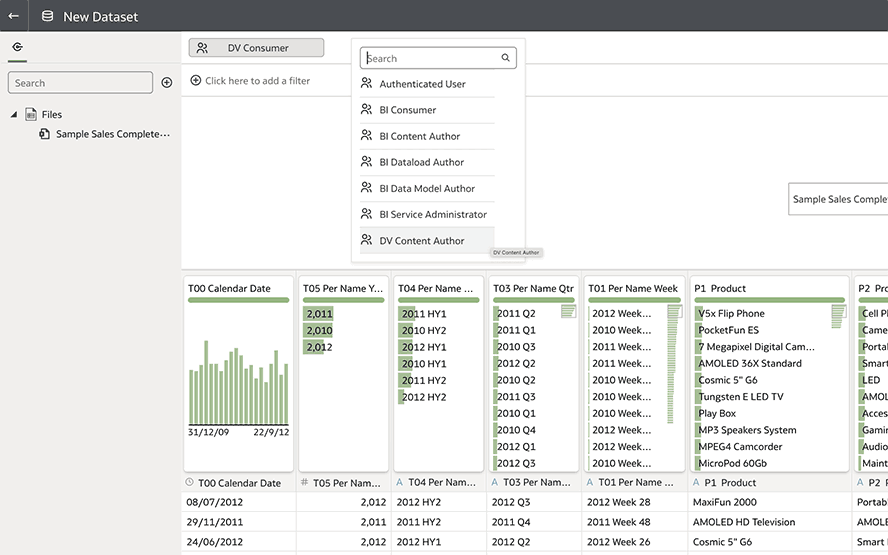Deployment
The Oracle Analytics platform is available in the cloud with Oracle Analytics Cloud (OAC), on-premises with Oracle Analytics Server (OAS), or in a hybrid deployment using both.
Cloud compute size
OAC is built on Oracle’s next-generation cloud infrastructure (OCI) and is a cloud native service that can be deployed with a compute size of between 2 and 52 OCPUs depending on the analytic workloads. It also offers the flexibility to scale up and scale down OAC environments, with the ability to shift between 2 to 8 OPCUs and between 10 and 12 OPCUs in increments of +/-2. When there is no need to access a specific OAC instance, it can simply be paused to reduce costs.
Identity management
Cloud authentication is provided by Oracle Identity Cloud Service (IDCS). If single sign-on (SSO) is required, OAC can federate with other identity providers, such as Microsoft Active Directory. On-premises-supported identity servers are Microsoft Active Directory, Microsoft Active Directory Lightweight Directory Services, Open LDAP, Oracle Access Manager, Oracle Access Manger Single Sign-on, Oracle Directory Server Enterprise Edition, Oracle Internet Directory, and Oracle Unified Directory. Refer to the certification matrix for specific versions and dependencies.
Roles and permissions
Oracle Analytics provides role-based security. Role-based security can be specified at the user, group, and role level. Use existing roles, such as DV Content Author and BI Service Administrator, or create custom organizational roles.

Data security
Define precise access permissions to data (by row and role), reports, and projects. Map read, write, and full control permissions to individuals, roles, and groups. Every user has their own private content folder. Foster collaboration on projects through shared folders and the OAC content catalog.

Runtime optimizations
Optimize runtime operations by designating connected data sets as live or cached. Use direct query technology to function ship data requests to their native sources. Schedule data flows to run at predetermined intervals. Configure projects to refresh on open and at prescribed intervals to ensure the latest data is always available.
Legacy OBIEE migration options
Existing OBIEE customers have a choice to either upgrade their deployment and remain on-premises with Oracle Analytics Server (OAS) or migrate their content to the cloud with Oracle Analytics Cloud (OAC). Staying on-premises and upgrading to OAS is included with currently active support agreements. If a move to cloud is preferred, existing OBIEE content can be migrated to a new OAC instance. For more information about migrating OBIEE to OAS, read the OBIEE destination guide.
Hybrid deployment
All data is retained on-premises while the analytics capabilities delivered with OAC are run in the cloud. It’s a performance choice to enable caching of some data or certain types of data, or to ensure no data is ever persisted in the cloud layer.
Supported on-premises operating systems
OAS: Supported operating systems for OAS are 64 bit: Oracle Linux, Red Hat Enterprise Linux, SUSE Linux Enterprise Server, and Microsoft Windows x64. Refer to the official certification matrix for specific versions and dependencies.